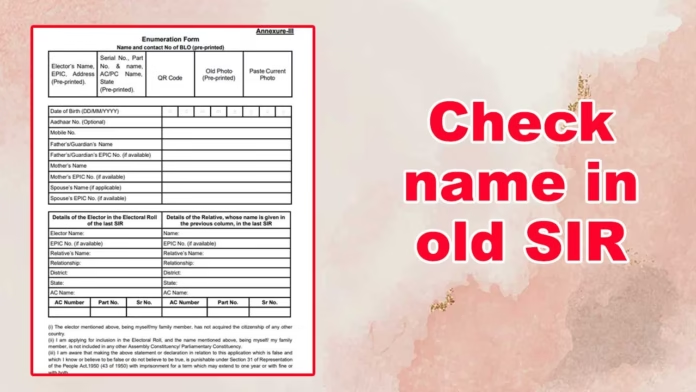It’s no longer a surprise that Tamil Nadu has turned its voter management into a fully digital experience. The state’s online voter platform helps citizens confirm their electoral details anytime. It connects every household to election data directly through the internet, giving a new level of accessibility and control over voter identity services.
An Initiative Under the Chief Electoral Officer
This portal functions under the Chief Electoral Officer of Tamil Nadu and serves as the state’s official voter information system. It updates citizens about ongoing electoral activities, voter registration status, and allows applications for name corrections or deletions. Supporting both Tamil and English, it ensures inclusion across urban and rural voters.
Smart Electoral Search for Every Voter
One of the most practical options on the site is the search tool that helps users verify their names in the electoral roll. You can search using your district, assembly constituency, or polling booth. This system provides instant results, helping users confirm their voter record’s presence before election day.
Revisions and Roll Updates Before Every Election
Before each major election, the portal publishes draft electoral rolls and invites citizens to check their details. This step allows new voters who just turned eighteen or recently shifted residence to ensure their names are listed. Corrections and inclusions can be submitted online without visiting the election office.
Simple Name or EPIC Search Options
The portal simplifies data access. Voters can enter their name, father or husband’s name, and age to find their record. Alternatively, entering the ten-digit EPIC number instantly retrieves the voter’s polling booth, constituency, and serial details. It’s the fastest way to verify your identity for voting purposes.
Voter Correction and Form Submission Made Easy
If you notice mistakes, missing entries, or duplicate listings, you can download forms like Form 6, Form 8, or Form 8A directly from the portal. The instructions explain what each form is for and how to upload documents online. This system cuts down paperwork and prevents long queues at election offices.
Digital Governance in Electoral Management
This initiative showcases Tamil Nadu’s commitment to e-governance. By digitizing voter data, the system minimizes human errors and allows smoother management of records. Officers can easily review updates and keep transparent archives of all changes. It’s a blend of technology and accountability aimed at cleaner electoral rolls.
Common User Errors and Solutions
While efficient, users should carefully select their district and assembly constituency. Incorrect selections can cause “no record found” messages. Sometimes new updates take a few days to reflect, especially after address or family-related changes. The system depends on local field officers to finalize the uploaded information.
Empowering Voters Through Early Verification
Verifying your name well before the election prevents last-minute issues. If your name isn’t on the list, you can act before the rolls are frozen. This gives every eligible voter a fair chance to participate and avoids being turned away from the polling station due to clerical errors.
A Technology-Driven State Framework
The platform runs in sync with the national digital framework but is customized for Tamil Nadu’s population. It offers district-wise lists, multilingual interface, downloadable rolls in PDF format, and dedicated helplines. Its backend integrates seamlessly with the Election Commission database for accuracy and record retention.
Bridging the Gap Between Citizens and Democracy
This voter service has a broader purpose — to bridge communication between the government and its people. Citizens can monitor the status of their applications, check booth details, and confirm polling stations. It makes the process transparent, reducing dependence on middlemen or local election agents.
Check Name
A Tool for Inclusive and Transparent Elections
By digitizing the entire electoral roll process, Tamil Nadu has made voting more inclusive. Citizens from remote areas, students, and differently-abled voters can all access their details without physical travel. This enhances trust in the system and ensures equal opportunity in the state’s democratic participation.





